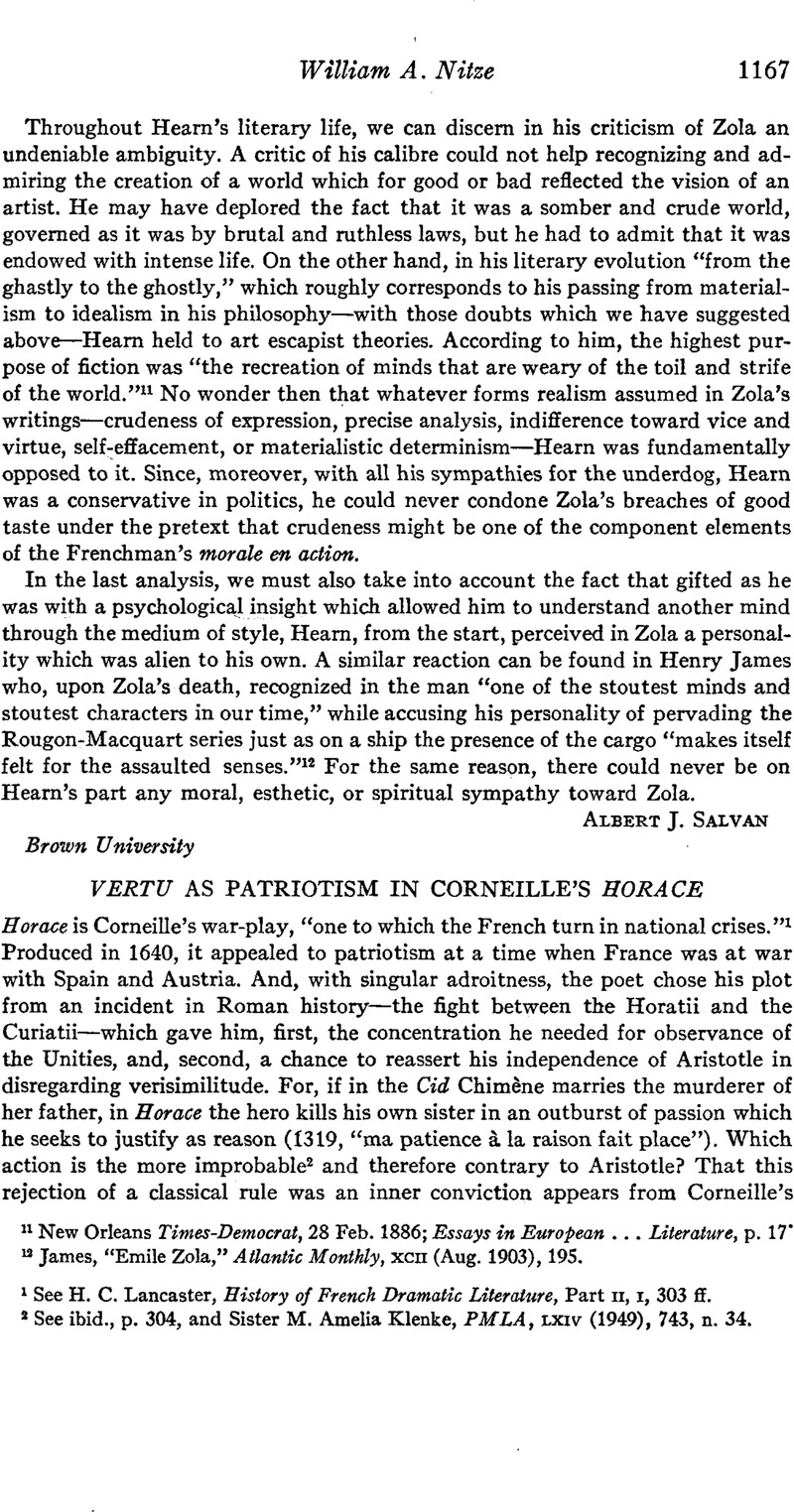No CrossRef data available.
Published online by Cambridge University Press: 02 December 2020

1 See H. C. Lancaster, History of French Dramatic Literature, Part ii, i, 303 ff.
2 See ibid., p. 304, and Sister M. Amelia Klenke, PMLA, lxiv (1949), 743, n. 34.
3 Lancaster, Part I, ii, 698.
4 For the distinction made in the fine arts see Wölfflin, Kunstgeschichtlicke Grundbegriffe, 7th ed. (1929). I do not attempt any definition of French Classicism beyond the principles (imitation, règle, goût) treated by René Bray, Formation de la doctrine classique (1927). On the difficulty of defining such a word as classicism see Henri Peyre, Classicisme français (1942). Helmut Hatzfeld, Comp. Lit., i (1949), 113 ff., gives a useful survey of the baroque, with bibliography; cf. also W. P. Friederich, JEGP, xlvi (1947), 132-143.
5 A list of the occurrences of vertu will be found in Octave Nadal's interesting book on Le sentiment de l'amour dans l'œuvre de Pierre Corneille (1948), pp. 370-371 and 297 (for comment). While vertu occurs frequently as “grandeur du courage” in Corneille's other plays, notably Polyeucte, Nicomède, and Pertharite, there it is incidental to the action and not the subject of analysis as in Horace. Pertharite again stresses vertu as self-realization or gloire; note vv. 661 and 1854, where it is a deterrent for Rodelinde and Grimoald and a justification or excuse for Pertharite. Yet, compact as Pertharite is psychologically, it moves in a vacuum remote from the world of real human beings. Nadal gives no account of the history of the word.
6 See my article in MP, xv (1917), 129-142 and 385-400, where the essential references are given to the influence of the Cortegiano. The reference above to Spenser is to the Variorum Edition (Baltimore, 1932).
7 See Seneca, De dementia, Préchac edition (Paris, 1921), p. 11, and Il libro del Cortegiano, Comino edition (Padua, 1766), p. 253.
8 Johns Hopkins Studies in Romance Lit. and Lang., iii (1926), 23 ff.
9 Ed. Cary, Harvard Univ. Press.
10 Cf. Horace, Epistulae i.vi.15-16, and Montaigne, Essais i, Ch. 30: “On peut et trop aimer la vertu, et se porter excessivement en une action juste”; also Shakespeare, Romeo and Juliet ii.iii: “Virtue itself turns vice, being misapplied.”
11 Also the Paris edition by Louis Billaine of the same date.
12 Martin Turnell, The Classical Moment, pp. 30-31. The interesting article on “Patriotism and ‘Gloire’ in Corneille's ”Horace' “ by W. H. Barber, MLR, xlvi (July-Oct. 1951), 368-378, appeared after the present one had been submitted for publication. While conceding that the younger Horace is swayed by love of glory, I still think that patriotism or devotion to the state (cf. Balzac's reference above to la patrie and Horace, vv. 704 and 710), embodied in la haute vertu, is the central theme of the play. However, I agree that ”modern nationalism“ should not be attributed to the seventeenth century.